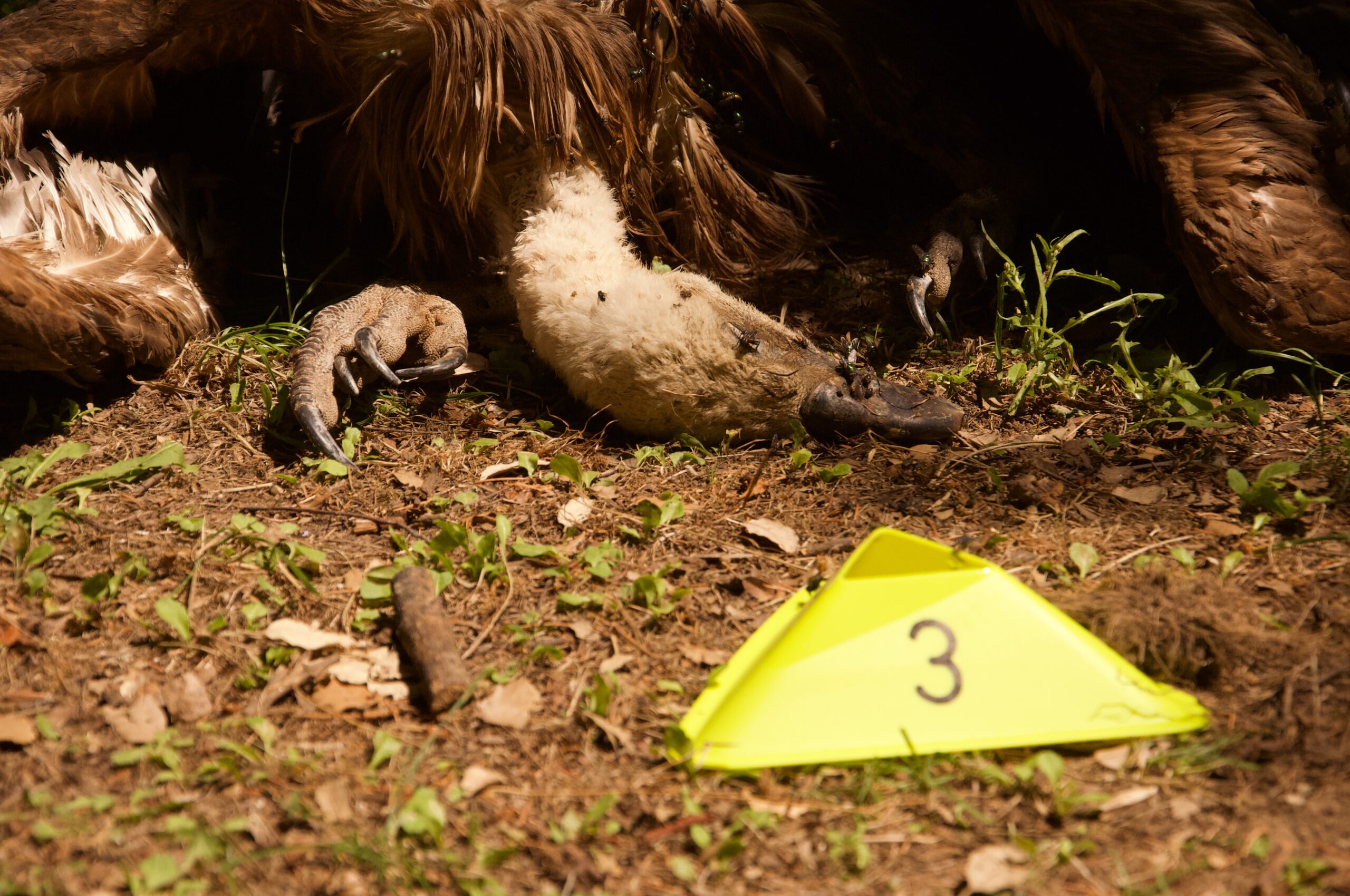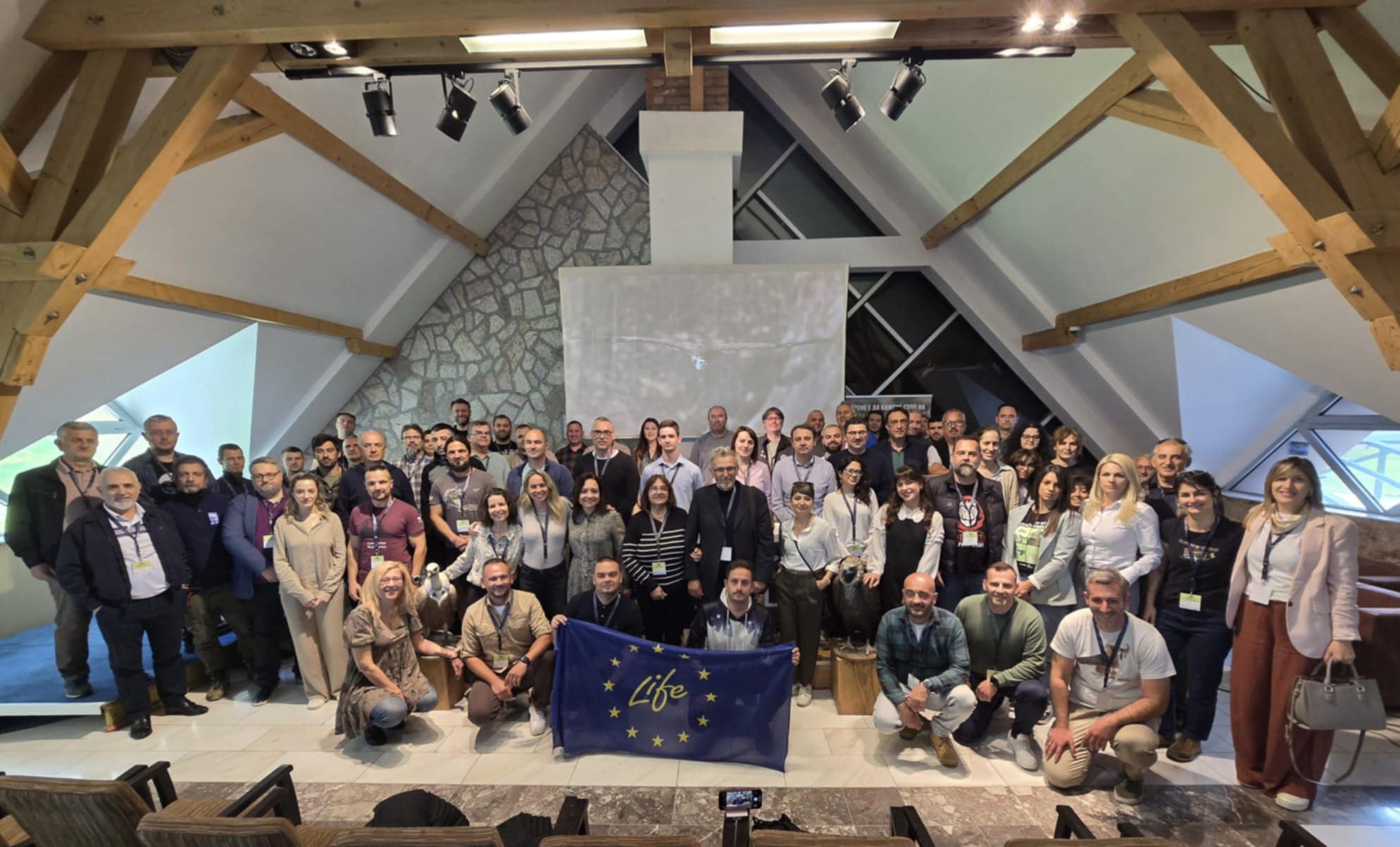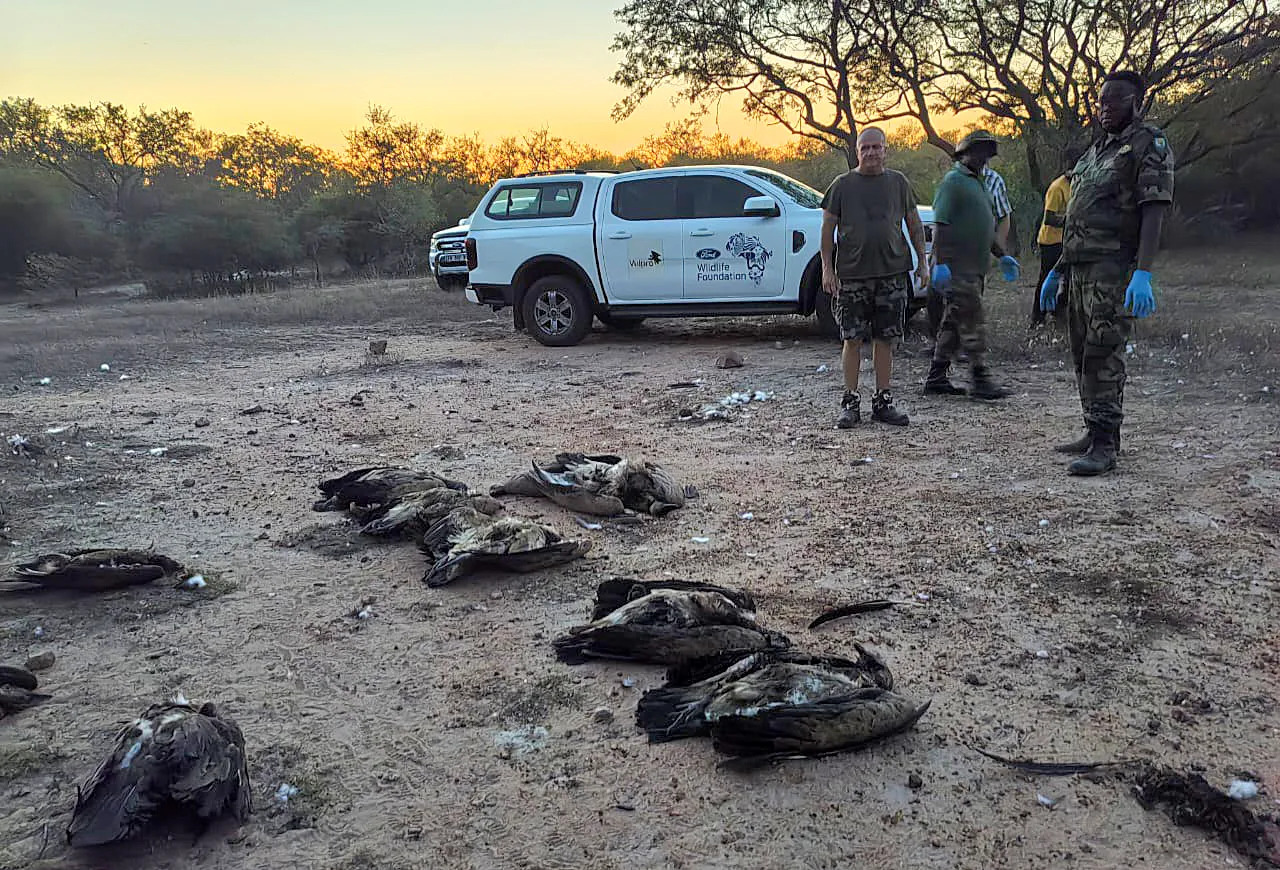
Within the scope of the Balkan Anti-Poisoning Project (BAPP) Small Grants Programme, funded by the Mava Foundation and coordinated regionally by us here at the Vulture Conservation Foundation (VCF), our partners from the Bird Protection and Study Society of Serbia (BPSSS/BirdLife Serbia) organised and carried out an educational workshop in the town of Sjenica about the role of vultures in our ecosystem and their greatest threat – poisoning.
It is important to note that activities took place within the karst plateau of Pestersko Polje, an area traditionally known for livestock breeding, extending to over 60.000 hectares of almost exclusively mountainous pastures. Pešter today sustains more than 60.000 cattle and around 50.000 sheep, making it one of the richest areas with livestock in the country. Vultures are no strangers to Pešter, as the breeding colonies of Griffon Vultures at Uvac and Mileševka gorge are very near, which is why this area is one of their most frequently visited foraging sites.
Cooperating to save vultures
Working directly with the local communities is very important as people need to understand the value of this unique ecosystem and the role that vultures play in their environment and that they themselves are the only ones who can ensure its sustainable use and management. The workshop was held at Svetozar Markovic elementary school in Sjenica, where school children were sitting side by side with representatives of the local administration as well as representatives of the Tourist Organization of Sjenica, which manages the Special Nature Reserve ‘Peštersko polje’.
Significant cooperation was established with the caretakers of this important nature reserve for vultures earlier this year when plans were made to construct a supplementary feeding site for these scavengers. We are happy to report that the construction of the feeding site is complete, making the fourth feeding site in the country specifically created for vultures. During the workshop, positive reactions about this endeavour were received from the local community, as the disposal of dead livestock is now made significantly easier, with much less effort and resources being needed with transportation to official dumping sites. They are also looking forward to reducing the human-wolf conflict, which is still present in this area. Some additionally good news is that the Tourist Organisation of Sjenica sees great development potential in promoting vulture species, which can become an appealing tourist attraction for the Pešter region.
The role of vultures in the ecosystem and illegal wildlife poisoning

BPSSS and SRP Peštersko Polje held three presentations at this workshop. BPSSS held the first with a focus on the natural beauty and richness, which this region possesses. This colourful introductory presentation was followed by a presentation on a not so beautiful topic, wildlife poisoning, with an emphasis on birds.
The third presentation was given by the take carer of the SRP Peštersko Polje – the Tourist Organization of Sjenica, talking about the feeding site they made for the vultures and the ecosystem services that these scavengers provide to the local community. Discussion followed after each presentation, with groups discussing potential advantages and disadvantages of tourism development in this region, and how to stop and mitigate wildlife poisoning incidents, especially intentional poisoning with poison baits. The leading causes of deliberate poisoning in the Pešter have been identified as wildlife predation on domestic animals, where the wolf and the bear are primarily considered as a threat. The discussion resulted in a few concrete suggestions on how to reduce the practice of wildlife poisoning, which relates to preventive measures (acquirement of shepherd and guard dogs, assistance in building adequate livestock facilities), and educational activities within the local communities.
Poisoning – a harmful practice to vultures and public health
Unfortunately, setting up poisonous baits in the Balkans and across Europe to fight against large carnivores and the damages they inflict upon livestock breeders is still a common practice. Our colleagues from BPSSS did their best to explain and inform the present attendees about the harmful effects of poison on wildlife, and the danger to public health.
The use of pesticides in an inappropriate manner, in contravention of applicable regulations and beyond the instructions for use, as well as the use of prohibited pesticides intentionally used to eradicate undesirable animals is often the cause of wildlife loss. The overall objective of the BAPP project in Serbia is the active protection of birds by reducing the number of incidents of deliberate and accidental bird poisoning. The most common poisoning victims are vultures and birds of prey. Thus, poisoning is one of the strongest pressures on populations of endangered bird species in Serbia.
The Balkan Anti-Poisoning Project Small Grants Programme
The Balkan Anti-Poisoning Project Small Grants Programme is the first time we at the Vulture Conservation Foundation have run a grant programme, and with this we aim to reinforce national capacities within relevant governmental authorities and conservation NGOs from six countries (Albania, Bosnia and Herzegovina, Croatia, Greece, North Macedonia and Serbia) of the Balkan Peninsula. This work will support those organisations to improve the skills and capabilities in the detection and mitigation of poisoning incidents through the implementation of previously developed National Roadmaps and Strategies. More specifically, through these small grants we endeavor to secure the implementation of priority anti-poisoning actions listed in the National Anti-Poisoning Road-maps/Strategies, strengthen the capacities of relevant national governmental institutions in combating the illegal use of poison baits, improve the enforcement of relevant legislation and attract other funding opportunities for implementation of large-scale anti-poisoning projects in the region. Through the support of the MAVA Foundation, we managed to dedicate a budget of €60.000 for these small grants.
Balkan Anti-Poisoning Project

The Balkan Anti-Poisoning Project is a cross-border initiative bringing together wildlife conservation organisations, governmental agencies and other stakeholder such as; hunting associations, farmers and scientists, in six Balkan countries to tackle illegal wildlife poisoning.
Funded by the Mava Foundation we aim to secure real and continued engagement of the relevant national governmental authorities in the Balkan region against illegal wildlife poisoning and increase their capacity to counteract it and working together to take positive steps to protect vultures.
The Balkan Anti-Poisoning Project is a partnership between us here at the Vulture Conservation Foundation and the Albanian Ornithological Society-AOS, Protection and Preservation of Natural Environment in Albania-PPNEA, Ornithological Society “Naše ptice”,Association BIOM, Hellenic Ornithological Society-HOS, Macedonian Ecological Society-MES.
The Balkan Anti-Poisoning Project also contributes directly into the implementation of the Vulture Multi-Species Action Plan by carrying out anti-poisoning actions in Albania, Bosnia and Herzegovina, Croatia, Greece, North Macedonia and Serbia, and is building on our work for the last decade in the Balkans thorugh the Balkan Vulture Action Plan.









